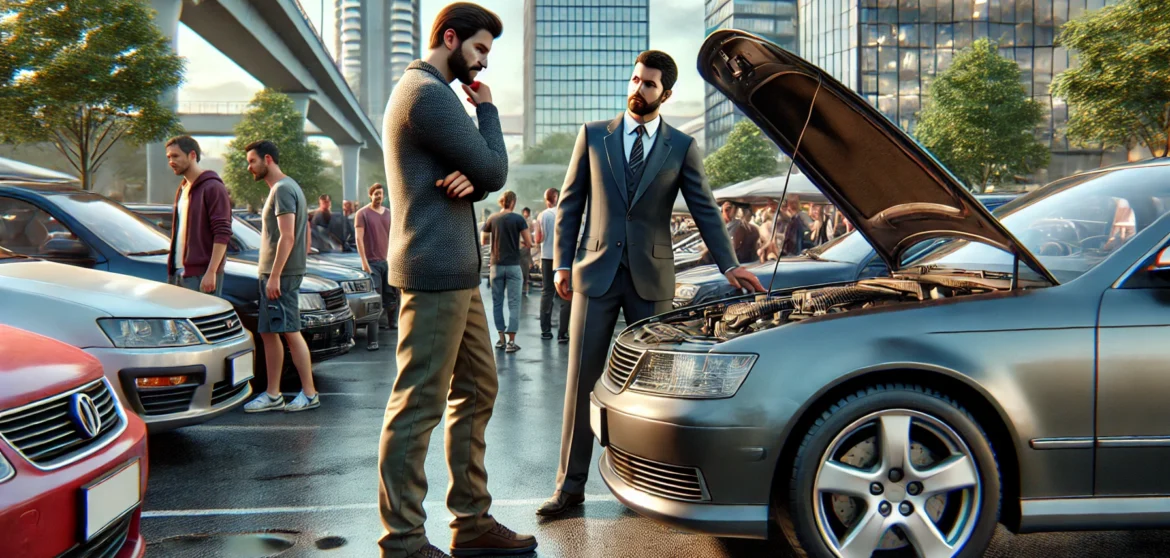How to Avoid Car Buying Scams in Dubai
Buying a car in Dubai can be an exciting experience, whether you’re looking for a brand-new luxury vehicle or a budget-friendly used car. However, like any major market, car buying in Dubai comes with risks, including car buying scams that can cost buyers thousands of dirhams.
Scammers use various tactics, such as selling cars with tampered odometers, hiding accident histories, or posting fake online listings to lure in unsuspecting buyers. If you’re not careful, you could end up with a damaged car, lose your money to a fraudulent deal, or face unexpected legal troubles.
Drive UAE will help you understand the most common car-buying scams in Dubai.
Common Car Buying Scams in Dubai
Here are some common car buying scams in Dubai.
1. Odometer Fraud
One of the most deceptive scams is tampering with a car’s odometer to make it appear that the car has fewer miles than it does. By lowering the mileage, the seller can inflate the car’s value and trick the buyer into thinking they’re getting a better deal than they are.
How to Spot It:
- Check for inconsistencies between the odometer reading and the car’s general condition.
- Look for signs that the odometer may have been tampered with, such as scratches around the dial.
- Request a detailed service history that includes mileage records.
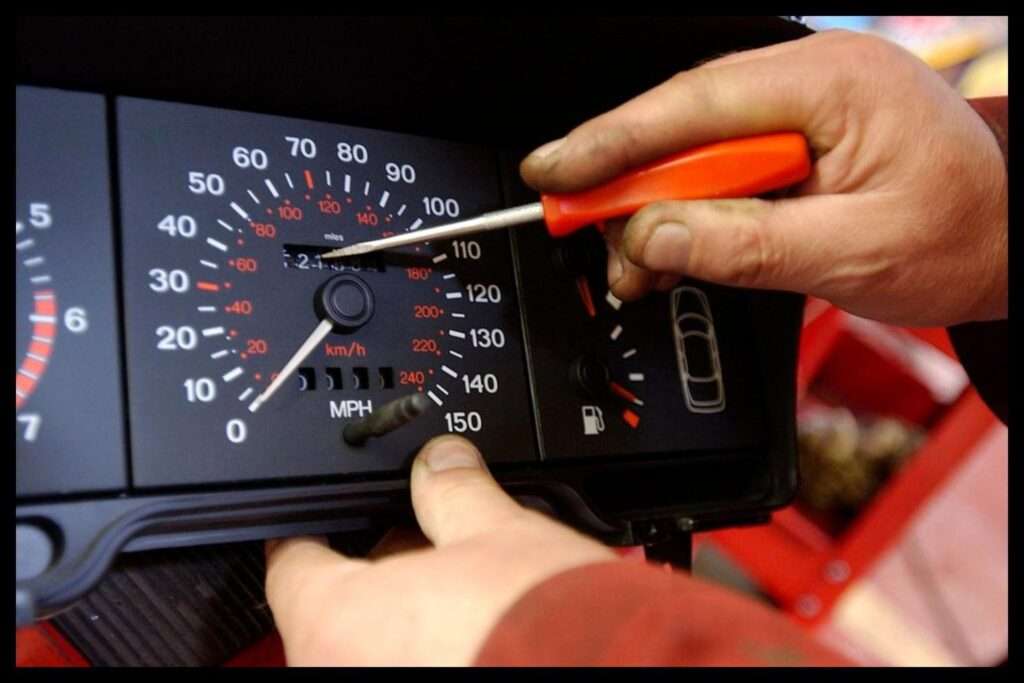
2. Fake Online Listings
Fake listings often appear on websites and social media platforms, where scammers advertise non-existent cars at ridiculously low prices. The scammer will ask for a deposit or payment upfront, claiming that the car is in high demand or that it’s being sold by a third party.
How to Spot It:
- If a car is priced much lower than similar models, be suspicious.
- Always ask to see the car in person and perform a test drive before making any payments.
- Be wary of sellers who refuse to meet or show the car.
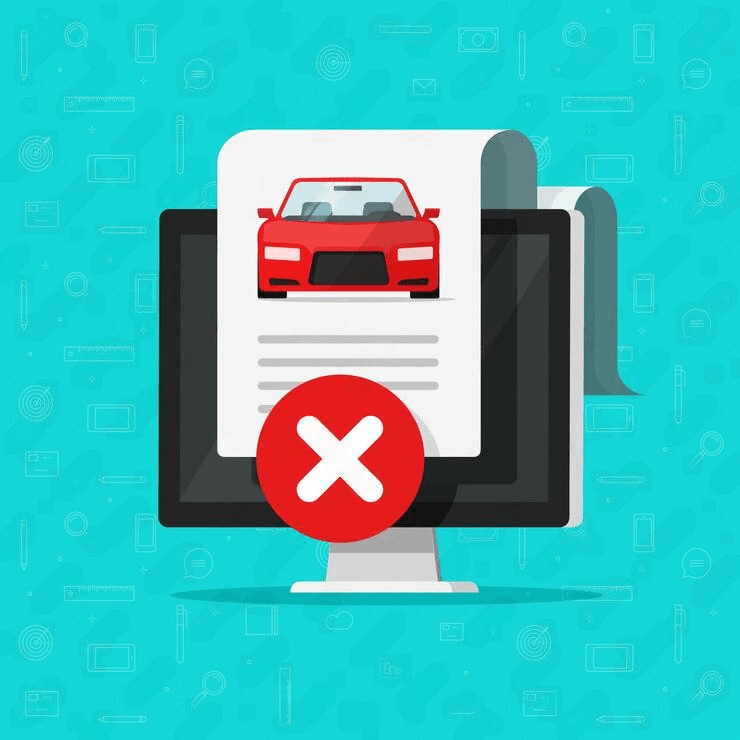
3. Title Washing
This scam involves altering the car’s title to hide a problematic history, such as previous accidents, floods, or theft. The scammer may change the car’s title in an attempt to erase any signs of damage, which can mislead the buyer.
How to Spot It:
- Check the car’s history report to ensure it hasn’t been in any major accidents or had serious repairs.
- Ask for detailed records of previous ownership.
- Be cautious if the seller is reluctant to provide full documentation or the history of the car.

4. Escrow Payment Scams
In an escrow payment scam, the seller claims to use an escrow service to protect both the buyer and seller. However, these escrow services are fake, and once the buyer sends the money, the scammer disappears with the funds.
How to Spot It:
- Always use a trusted, reputable escrow service. Verify its legitimacy before making any transactions.
- Be cautious of escrow services that seem too eager or lack proper contact information.
- Avoid paying directly into the seller’s personal bank account.

5. Concealed Vehicle Histories
Some sellers hide a car’s history of damages or accidents. They may cover up past accidents, repairs, or mechanical issues to make the car appear more reliable. This can lead to unexpected expenses and safety concerns for the buyer.
How to Spot It:
- Get a full inspection of the vehicle from a trusted mechanic.
- Request the car’s accident history and verify it with the insurance company.
- Check for signs of past damage, like mismatched paint or bodywork.
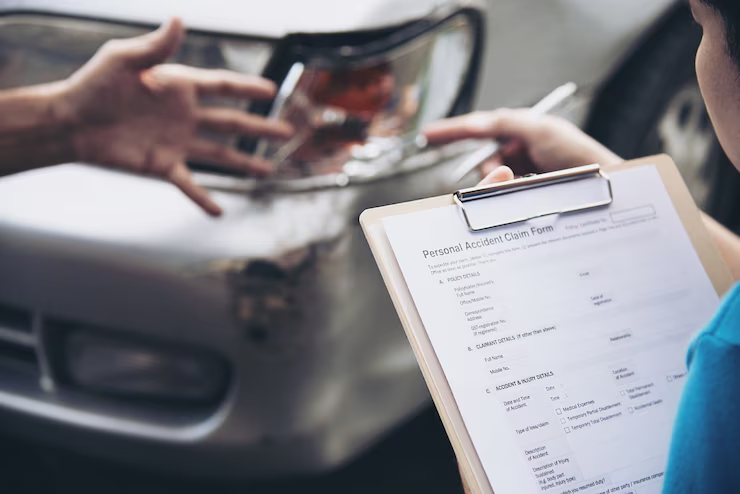
Red Flags to Watch Out For
While buying a car in Dubai, there are several red flags you should keep an eye out for to avoid falling victim to scams:
1. Unusually Low Prices
If the price of a car is much lower than its market value, it’s a major red flag. While discounts are common, prices that are too good to be true often signal that something is wrong.
2. Pressure Tactics for Quick Decisions
A legitimate seller will allow you to take your time and make an informed decision. Beware of sellers who pressure you into making a fast decision, especially if they demand an immediate deposit.
3. Incomplete or Inconsistent Documentation
Make sure the car’s documentation is complete and matches the car’s details. If the seller provides incomplete or inconsistent documents, it could be a sign of fraud.

4. Sellers Avoiding In-Person Meetings or Inspections
If the seller refuses to meet you in person or avoid allowing you to inspect the car, it could indicate they are trying to hide something about the car’s condition.
Steps to Protect Yourself from Car Buying Scams
Here is what you should do.
1. Research Thoroughly
Before buying a car, do your homework. Research the market value of the car you’re interested in, and make sure it aligns with the price the seller is asking. Check online resources and car dealerships to get an idea of average prices.
2. Inspect the Vehicle
Always conduct a professional inspection of the car and take it for a test drive. This will help you identify any hidden issues that the seller may be trying to conceal. Consider hiring a mechanic to inspect the car if you’re unsure about its condition.

3. Verify Documentation
Ensure that all the car’s documents are in order. This includes the ownership title, service records, insurance papers, and accident history. Verify everything with relevant authorities to ensure the documents are authentic and not altered.

4. Use Secure Payment Methods
Avoid cash transactions as they are difficult to trace. Always use secure payment methods like bank transfers or certified checks. This way, you have proof of payment if something goes wrong.
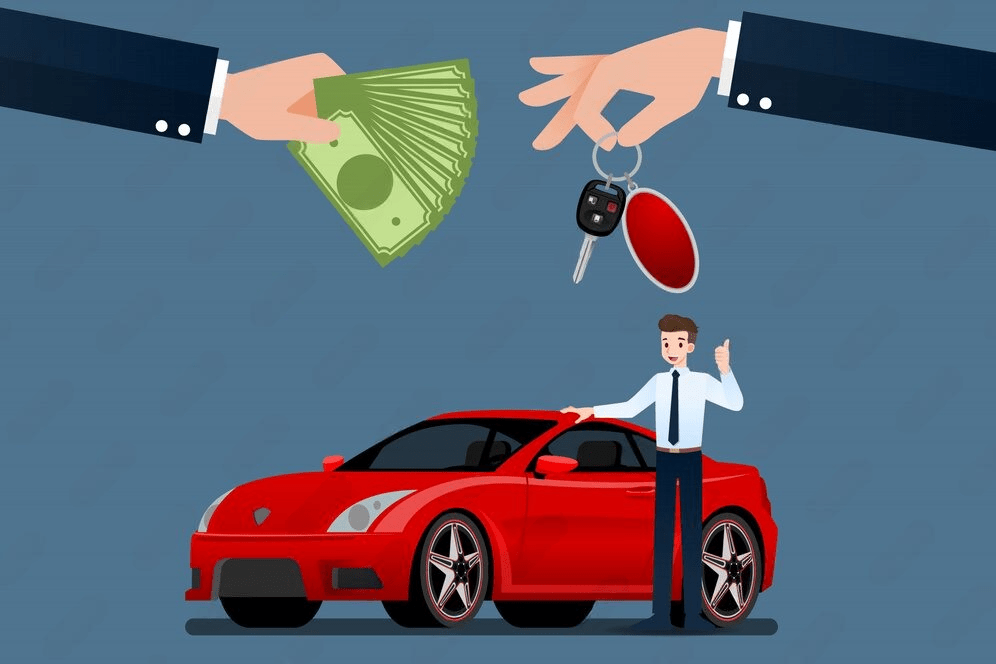
5. Consult Legal Experts
If you’re unsure about the car purchase, consult a lawyer to help you understand the terms of the contract and any legal obligations. This can help you avoid making a mistake that could cost you in the future.
Conclusion
When purchasing a car in Dubai, it’s crucial to be aware of the potential scams that could end up costing you time, money, and peace of mind. Always do your due diligence, verify all details about the car, and never rush into a decision.

